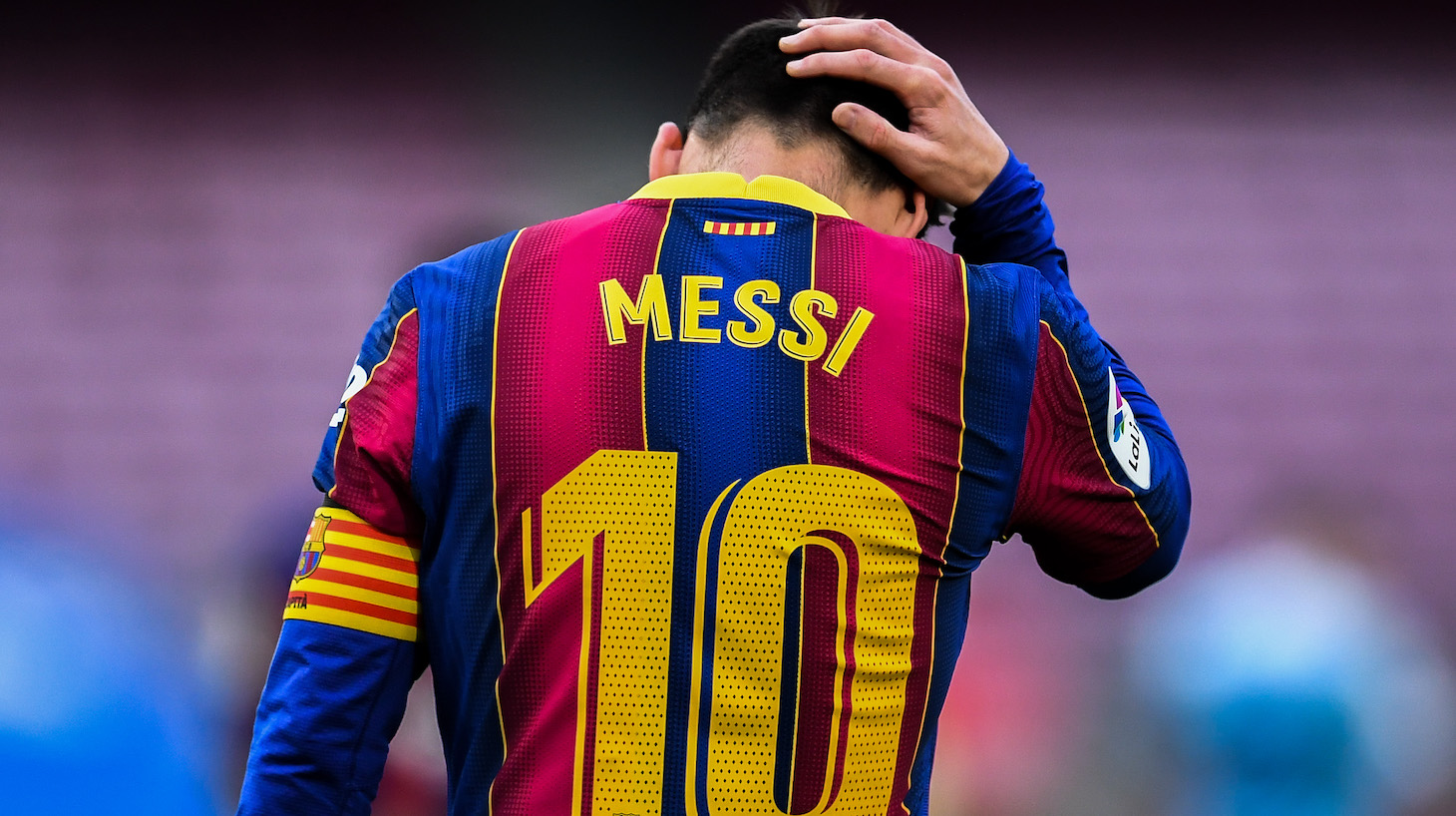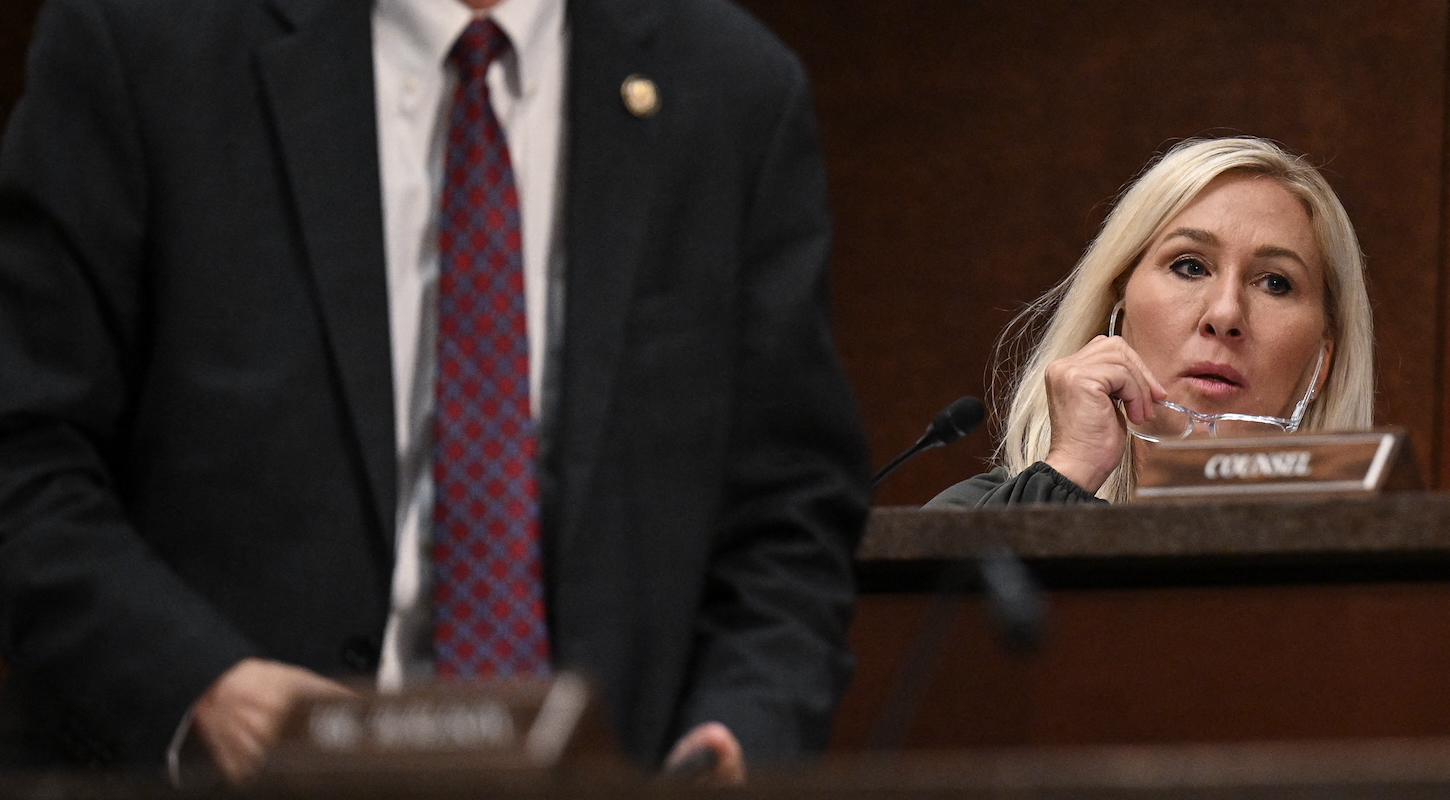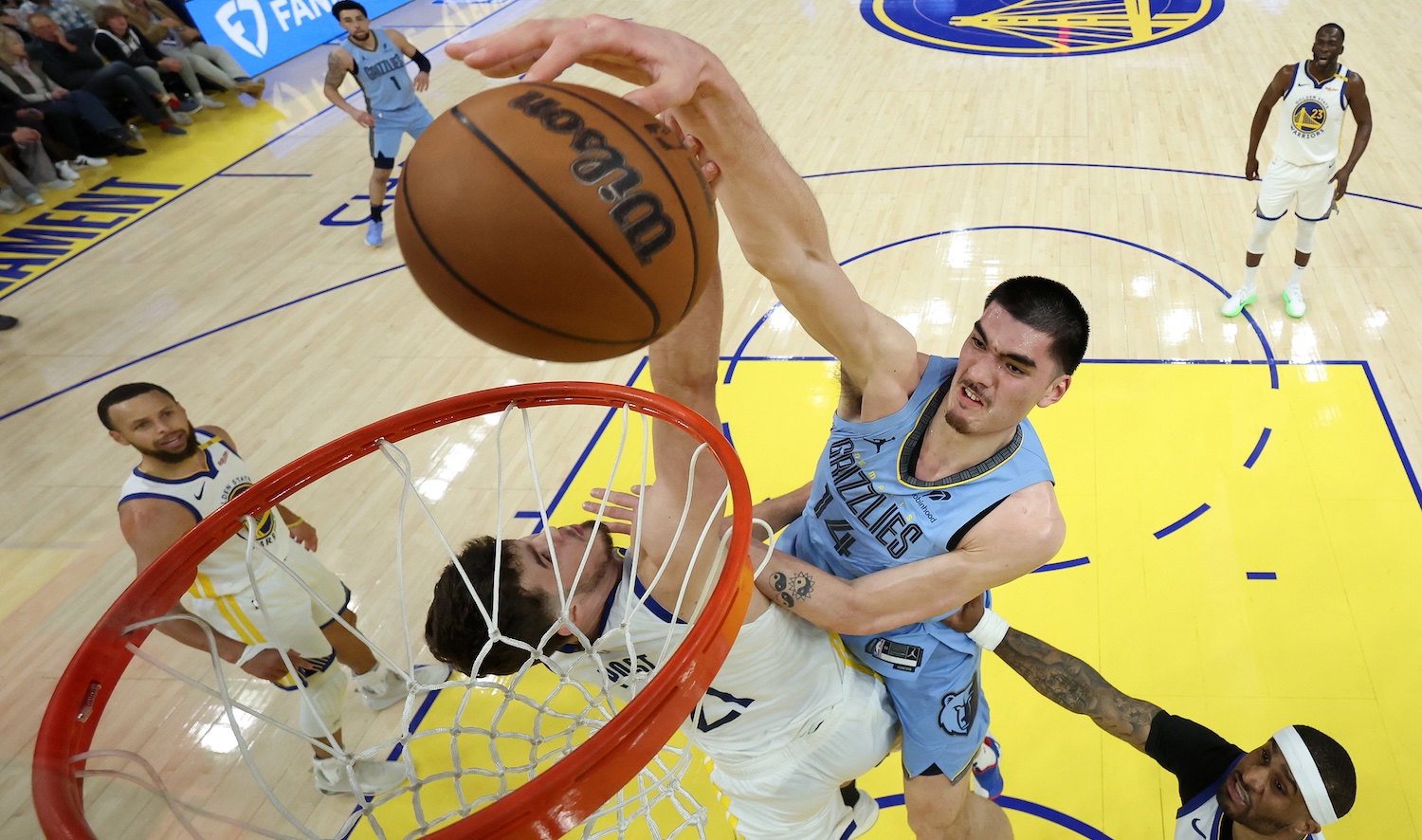Lionel Messi's contract with Barcelona—which, you may recall, he was forced to serve out after trying but failing to unilaterally cancel it last August—officially expired at the end of June. So, technically, he hasn't been a Barcelona player for an entire month now. And yet in spite of that fact, Barcelona's announcement today that Messi will not be signing a new agreement with the club, and thus for the first time since he was 13 years old he will wear a different club's jersey on the pitch, landed like one of those ground-rupturing earthquakes.
Lionel Messi will not play for Barcelona anymore. Even now, hours after the club's announcement and a full year since Messi put the unthinkable into everyone's minds by demanding a move, it doesn't seem fully real. Every report since about March, when Joan Laporta won the club's presidential election in large part due to his convincing case that he alone could persuade the Argentine star to stay, indicated that Messi and Barcelona would continue their storybook connection. Even the expiration of the old contract didn't feel like much cause for concern, not when, again, every single report claimed that the two parties had already reached a verbal agreement on a new deal that would keep him in town, and all that remained was for the club to shift around some money to clear up its finances and for Messi to fly back to Barcelona and sign on the dotted line.
And it's not like those reports were wrong, either. The club's own statement today verified as much, making clear that both the team and Messi had indeed intended for him to sign a new contract:
Despite FC Barcelona and Lionel Messi having reached an agreement and the clear intention of both parties to sign a new contract today, this cannot happen because of Spanish LaLiga regulations on player registration.
As a result of this situation, Messi shall not be staying on at FC Barcelona. Both parties deeply regret that the wishes of the player and the club will ultimately not be fulfilled.
In the end, the problem was that other subject of every media report about the club this summer: Barcelona's finances are a complete disaster.
That's what Barça is obliquely referring to when it blames the failure to re-sign Messi on "LaLiga regulations on player registration." Unlike other big European leagues, La Liga has a rather firm hand on its constituent teams' finances. Principally, this is reflected in the league's salary cap. Every season, La Liga takes a look at each club's books, and based on its expenditures and revenues sets a limit on how much that team is allowed to spend on player salaries. For years now Barça has been spending right up to the very ceiling of its cap, paying out a frightening percentage of its revenues on player salaries.
This has long been worrying as part of the club's broader financial mismanagement. The club's short-term thinking led to it giving massive deals to its aging core and spending mountains to bring in new, expensive, ill-fitting forwards to fill a Neymar-sized hole. Barcelona could more or less get away with this during normal times, since the billions the club earns through its various revenue streams meant it could always just about foot the bill when it came due. But once the COVID-19 pandemic dried up those revenue streams in a hurry, Barcelona was in trouble.
According to some reports, the salary cap La Liga set for Barça for the upcoming season is about one-quarter of what it was before the pandemic. That means that if the season started tomorrow, the club would be in flagrant violation of the cap, and would not be allowed entry to the competition unless it left some names off its official registration of eligible players.
Because of this, Barcelona has been frantically trying to shed salaries by any means necessary. It has tried to convince its reportedly skeptical captains to take big pay cuts, as of yet to no avail. It has tried to pawn off high-earning squad players like Miralem Pjanic and Samuel Umtiti, even offering to let them leave for free as long as they just leave, as of yet to no avail. It has tried to orchestrate a bizarre swap deal that would've sent superstar Antoine Griezmann back to Atlético Madrid in exchange for out-of-favor midfielder Saúl Ñíguez, also to no avail. Even with Messi agreeing to halve his old salary in the purported new deal, the club still needed to slash costs in order to register not only Messi but also new signings like Memphis Depay and Eric García. In the end, Barça has at last appeared to acknowledge that it can no longer kick the can any further down the road, and its poor financial planning has led to it having to prematurely say goodbye to the greatest player in club history.
To some extent, Barcelona does have a justified gripe with La Liga. The league's salary cap is certainly well-intentioned and is arguably a smart measure to prevent clubs from spending themselves to death, but to apply it so stringently in the midst of a historically unprecedented and random and (hopefully?) short-lived crisis like the COVID pandemic doesn't make total sense. Yes, Barcelona wasn't being run very frugally over the years. However, the club's long-term financial prospects aren't really all that dire. COVID meant nobody could buy tickets to the stadium for a year and a half, which really hurt Barça's bank account; presumably once the Spanish population is sufficiently vaccinated and the threat of COVID is minimized, fans can return to the stadium and Barça can go back to making zillions of dollars. It's not entirely fair to treat Barcelona as if it is on the brink of bankruptcy when it is probably not in fact on the brink of bankruptcy, as long as these weird times go back to something close to normal soon.
A more flexible league would recognize this and ease its regulations. La Liga has not proved flexible, and so Barcelona has been made to pay by not being able to pay Messi. Nevertheless, a more wisely run club would've been better able to deal with these circumstances, and so Barcelona really can blame no one but itself.
Because of how shocking today's announcement was, and Barcelona's and Messi's clear desire to stay together, and the bureaucratic weirdness that appears to have broken up that union, there is some reason to believe or at least hope that today's statement is just a ploy. The thinking there holds that Barcelona knows that La Liga knows that a Spanish league with Messi in it is significantly more valuable than a league without him, and so by announcing the club's inability to re-sign Messi because of league rules, it could pressure La Liga into relaxing those rules. This saga has already been so crazy and so full of wild shifts that it's impossible to rule out both that the theory is correct and that the tactic proves successful and Messi does end up staying, but the odds don't look great. Even more final that the club's statement were the goodbye videos it tweeted a little while later, which I don't think they'd send unless they knew it was over.
Laporta has called a press conference to discuss the matter tomorrow morning, during which he presumably will make clear just how official all of this is. The only thing certain right now is that Messi is presently not a Barcelona player, and it doesn't look like he will be one ever again.






